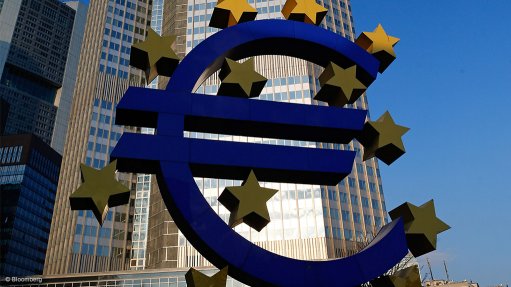
Photo by: Bloomberg
New research from Grant Thornton’s International Business Report (IBR) reveals that businesses in developed markets look set to drive global business growth prospects in 2014, while peer economies in Brazil, Russia, India and China (Bric countries) and other emerging economies face a more challenging period.
The report, based on research data for the fourth quarter of 2013, highlighted a reversal of sentiment across G-7 businesses and the eurozone economies, with optimism levels regarding future economic prospects improving significantly.
In stark contrast, South African privately held business owners and the emerging markets in the Bric countries were expecting a far more pessimistic outlook for the year ahead.
Thirty-nine per cent of South African business owners polled in the fourth quarter of 2013 expressed optimism about future economic prospects, representing a 10% decrease compared with the fourth quarter of 2012 and a 20% decrease on responses recorded in 2011.
This time last year, business optimism in the G-7 economies stood at a pessimistic response figure of -16% compared with 39% in the Bric economies.
“However, the picture heading into 2014 is markedly different, with optimism in the G-7 [countries] rising to 28%, driven by improvements in Japan, the UK and US and equating to an overall increase in optimism levels of 44 percentage points,” commented Grant Thornton South Africa chairperson Deepak Nagar.
Optimism in the Bric countries had fallen by 17 percentage points to 22%, with Brazil, at 10%, hitting an all-time low and Russia at 1% – its lowest level since 2009.
“The future situation in the Bric economies is much more difficult. The prospect of the US Federal Reserve tapering its extensive quantitative easing programme sent emerging markets into a spin in 2013 and the signs are that this will finally happen at some point in 2014,” said Nagar.
He added that growth had slowed markedly in all four Bric economies and, while the outlook for China remained more stable, Brazil, India and Russia faced “serious” economic and political challenges in the next 12 months.
“This change in levels of business confidence fed directly into business growth prospects,” Nagar noted.
In December 2012, 39% of business leaders in both the G-7 and Bric economies cited a lack of demand as a constraint on growth, which, for the G-7 countries, declined to 29% in the fourth quarter of 2013.
The fourth quarter data further highlighted that 18% of South African business executives surveyed were “lamenting” a lack of demand and a shortage of orders as a constraint to business growth.
This statistic had remained fairly static since 2011, which also emphasised a stagnant economy in which demand has not grown for over 36 months.
DIVERGENT SENTIMENT
The IBR further revealed a “chasm” in the economic outlook of the eurozone’s two largest economies.
While French business leaders ranked as the most pessimistic in the 45-economy survey of 3 500 businesses, German peers continued to be optimistic about future economic growth, creating an imbalance which could create instability in the eurozone and pose a threat to economic recovery.
However, the IBR results also highlighted resurgent business confidence in Ireland as an example of how eurozone economies could turn their fortunes around.
Business optimism across the eurozone had improved markedly over the past 12 months, rising from -22% in the final quarter of 2012 to 8% in the quarter under review.
This improvement was led by the currency bloc's most important economy, Germany, wherein optimism had risen 30 percentage points to 51% over the same period, with expectations for revenue, profit and export growth all up from the prior year.
In contrast, no business community was as downbeat for 2014 as that of France.
At -38%, French business leaders were more pessimistic than peers in Greece (-20%), Spain (-9%) or Italy (-4%). France also ranked last globally for the revenue (8%) and profit (-4%) growth expectations in 2014.
“France and Germany sit at the heart of the eurozone, but their economies are travelling at very different speeds and directions. This imbalance is a concern and could put pressure on the single currency. Unlike Greece, Portugal or Ireland, France has the economic weight to cause a substantial problem that central banks might struggle to contain.
“In addition, any form of instability in the eurozone would directly affect Africa, and South Africa for that matter, as this region is one of the country’s largest trading blocs,” Nagar cautioned.
As business leaders planned for 2014, growth prospects in the G-7 looked more robust, but uncertainty was growing in the Bric and other emerging economies.
“The hope is that we are moving toward a more balanced global economy with fewer extremes. This should support business growth prospects, as greater balance and less volatility means businesses can plan for the future and make decisions with greater certainty," Nagar concluded.